Albums and EPs are both essential formats for releasing music and can seriously impact your music career (both positively and negatively).
As an artist, understanding all of the differences between an album and an EP can seriously influence your success and make sure you don’t flop.
You have to be strategic and consider your goals, resources, and target audience, which is why we’re breaking down everything you need to know about an album vs EP, like:
- Length and format ✓
- Purpose of releases ✓
- Release strategies ✓
- Production considerations ✓
- Marketing strategies ✓
- Distribution/streaming services ✓
- Financial implications of an album vs EP ✓
- Getting on playlists ✓
- Advanced tips for artists ✓
- Much more about the difference between an EP and album ✓
After this article, you’ll know everything about an album vs EP so you can make the right decisions about your music releases.
Plus, you’ll be able to decide which format is best for your next project and how to properly market and distribute your music so it actually gets heard.
This way, your tracks can reach a wider audience, and you can transform your music career like a professional.
So, let’s dive in…
Table of Contents
Album vs EP (The Difference Between an EP & Album)
Understanding the difference between an EP and album is super important for digital artists (especially a new artist). Each format serves distinct purposes and has its own unique characteristics, so let’s start by breaking down the basics.
-
What is an Album? Length & Format
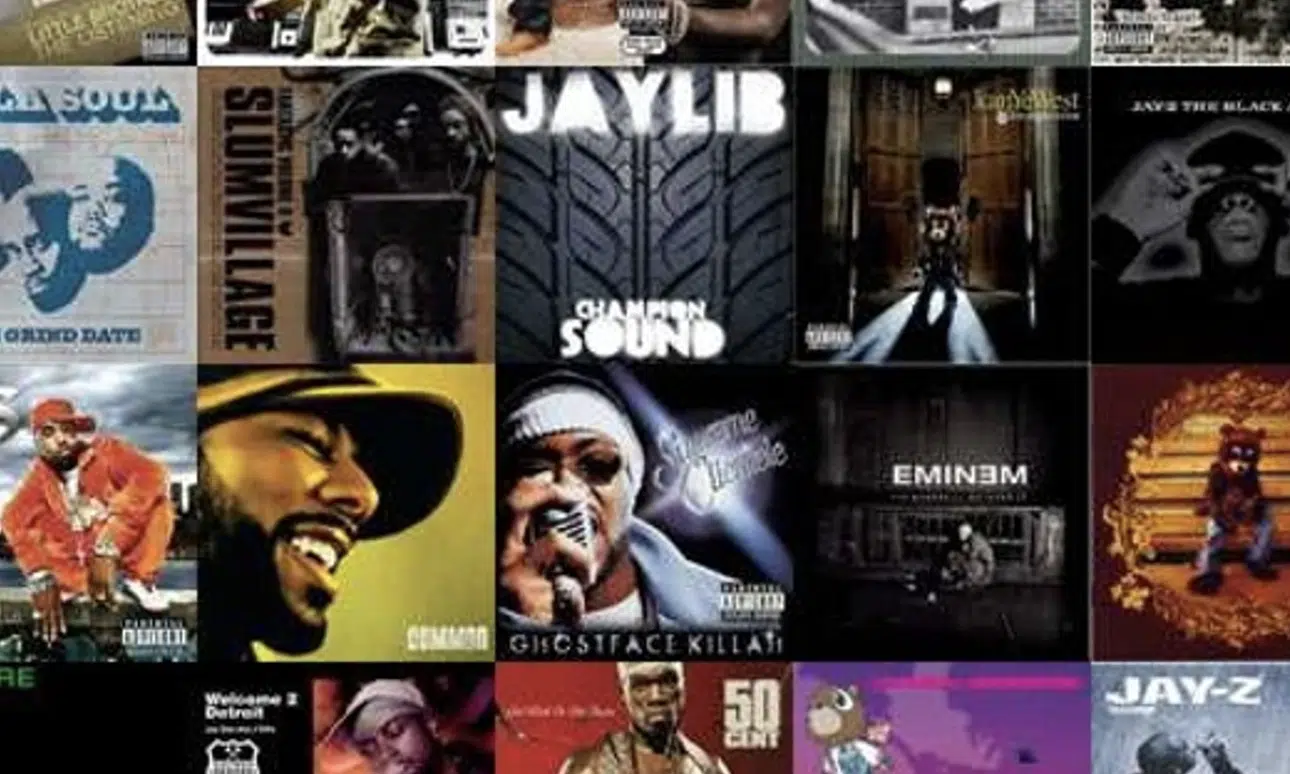
An album is a collection of music tracks that runs longer than an EP.
The standard length for a full-length album format usually includes seven or more tracks 一 typically going over 30 minutes in total running time.
It’s all about showing off your unique style and vibe so people really get invested.
Albums provide artists with the space to explore different themes, showcase a range of styles, and create a cohesive (full-length) body of work.
This format is ideal for storytelling because there’s enough room to build a much deeper connection with the listener, which is honestly what it’s all about.
In the digital age where physical CDs are pretty much dead, albums are often released on platforms like Apple Music and Spotify so artists can reach new fans.
Releasing a full album can really show how serious you are about making music and hopefully help you catch the eyes and ears of the music industry.
All in all, it’s a solid way to solidify your new music career and start building a dedicated fan base if you have enough content and time.
-
What is an EP? Length & Format
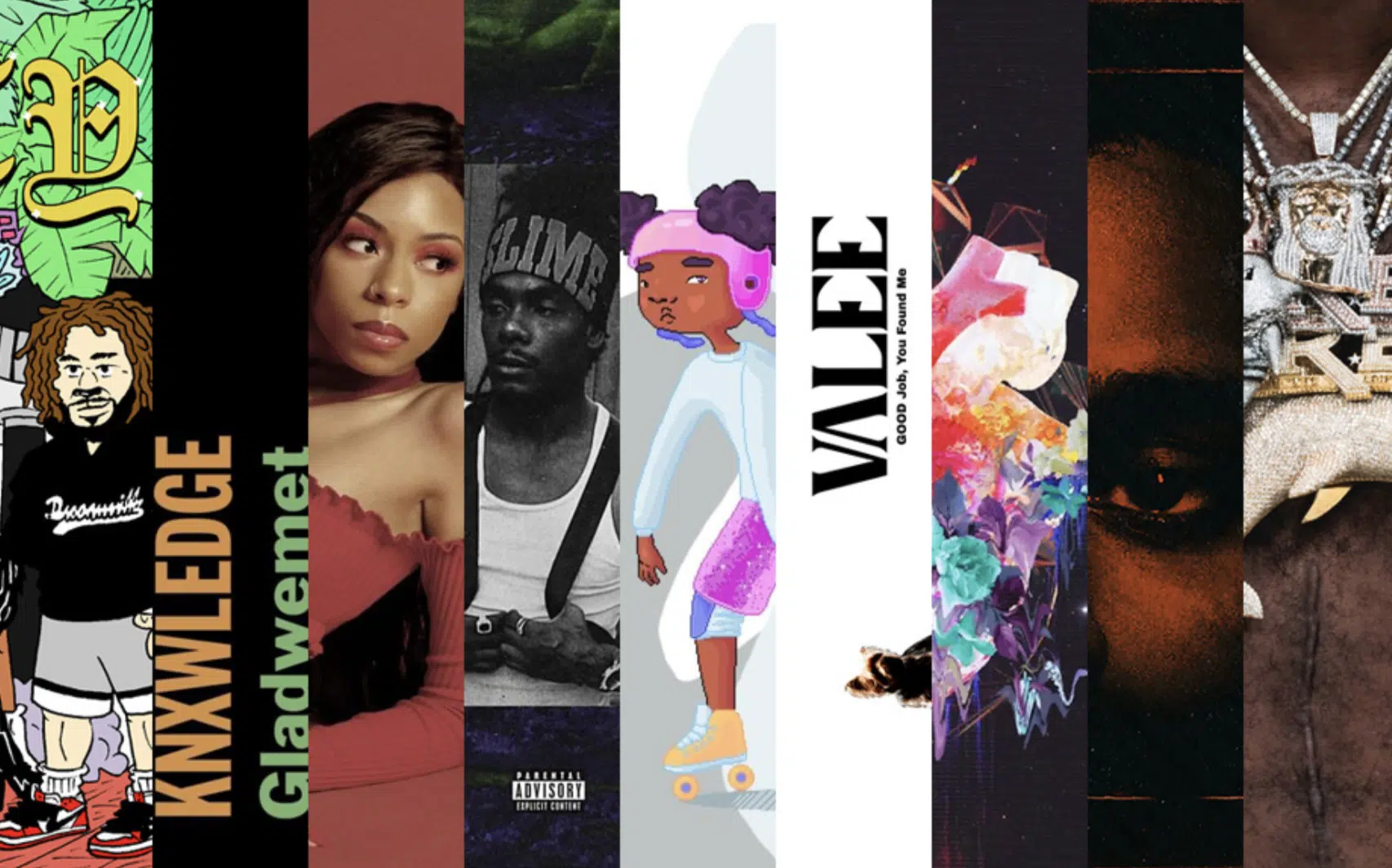
EP stands for Extended Play, and is shorter than an album but longer than a single (which is, of course, one song).
Typically, an EP includes 3 to 5 tracks and runs for about 15 to 30 minutes.
This particular format is perfect for artists who want to release music more frequently without the commitment of creating a full-length album.
EPs are often used to keep fans engaged and introduce new music or experiment with different sounds to see what people respond to.
Remember, if you really want to make a name for yourself, you have to find a niche.
Plus, they’re also a great strategic way to build momentum between album releases.
EP releases can help maintain an artist’s presence on streaming platforms, keep the audience excited for more, and stay relevant.
-
Pro Tip: So What is an LP (Long Play)?

LP stands for Long Play, which is essentially another term for a full-length album, so I thought I’d mention it so you didn’t get confused.
Originating from the days of vinyl records, an LP traditionally contains more songs than an EP, typically around 8 to 12 tracks.
In the modern music industry, the term LP is still used interchangeably with an album; artists opt for LPs when they want to showcase a more extensive body of work than a short album.
Creating an LP (Long Play) requires a big investment of time and resources but offers a solid payoff in terms of audience engagement if done right.
Understanding these terms helps artists choose the right format for their music release strategy, which we’ll be breaking down in the next section.
Releasing an Album vs EP: Breaking it Down
When deciding between releasing an album or an EP, you’ll need to consider your goals, audience, and resources for the entire project. Each format has its own set of advantages and challenges for artists, so let’s break it down.
-
Purpose of an Album Release (+ Release Strategies)
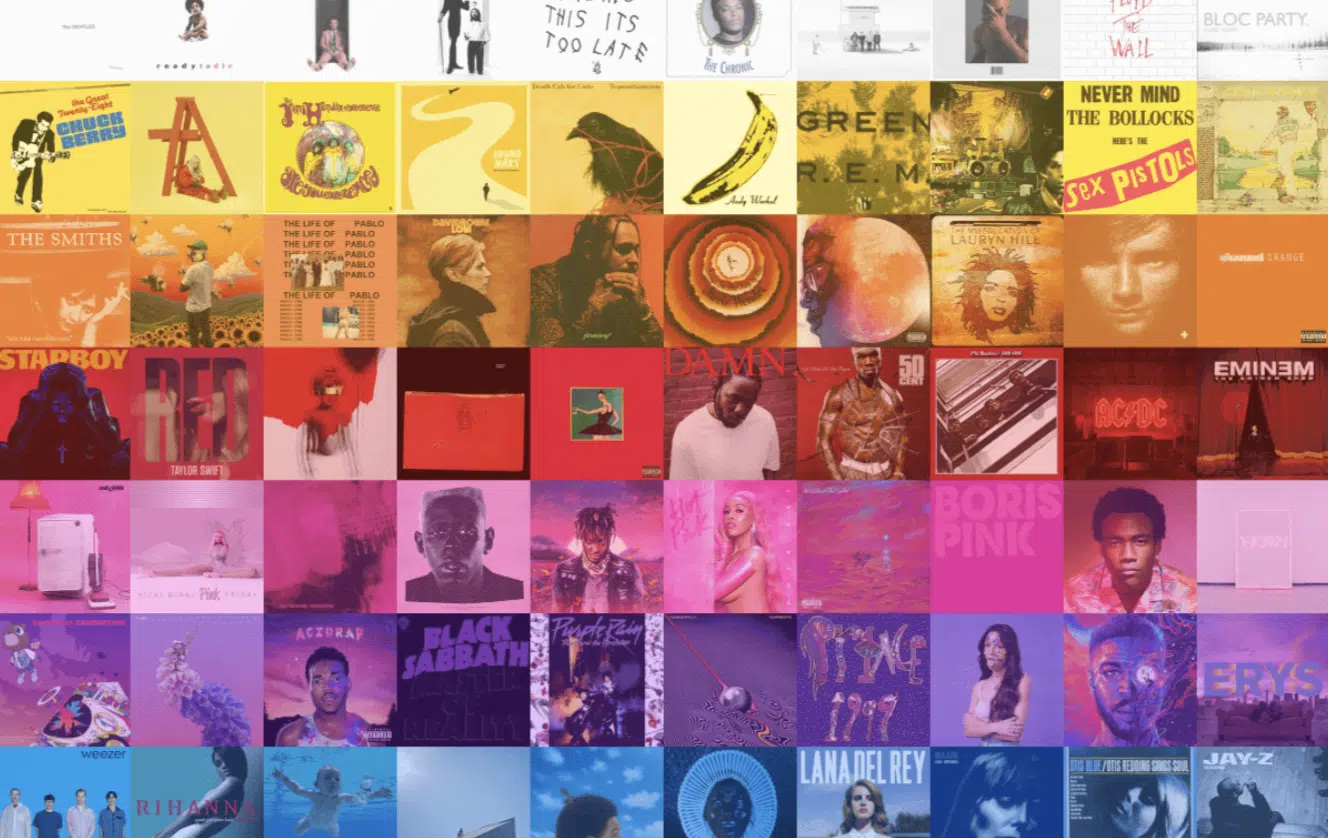
Releasing a full album allows artists to present a complete artistic vision, so you can really dive into more complex themes and prove that you can be versatile.
Full-length albums are great when it comes to leaving a lasting impression and really putting it all out there.
For release strategies, I recommend releasing singles before the whole album launch to generate buzz, which is always a smart move.
Also, use platforms like Spotify and Apple Music to release these singles and build anticipation for when you do release that album.
Of course, social media and digital downloads are going to be your key to reaching a wider audience, so always go hard on there.
Full-album releases always benefit from some strategic teaser campaigns and exclusive content for fans 一 driving massive engagement and sales.
This is especially beneficial if your following is on point.
NOTE: Collaborate with other artists to expand your reach.
A full-album release is ideal for solidifying your presence in the music business and making major waves, especially if you’re cross-promoting.
-
Purpose of Releasing an EP (+ Release Strategies)

Releasing an EP is a great way to keep the momentum going between full-album releases because it’s all about maintaining that hype.
It allows artists to:
- Experiment with new sounds
- Showcase your versatility, style, vibe
- Gauge audience reactions
EPs are less time-consuming to produce, making them perfect for staying relevant in the fast-paced music industry.
And just like you would with an album release, always take advantage of digital platforms and playlist placements, which we’ll talk about a little later.
EP releases are great for testing out new genres or styles and getting feedback from your target audience, especially for new artists trying to build a fan base quickly.
NOTE: Engaging with your audience through EPs can lead to bigger opportunities down the line, so don’t leave them in the dark.
For example, many hip-hop artists release EPs to keep fans of the hip-hop community engaged while working on their next full album; pretty simple.
It’s all about staying relevant, so releasing EPs in between your main albums is still the way to go my friends.
-
Pro Tip: Production Considerations
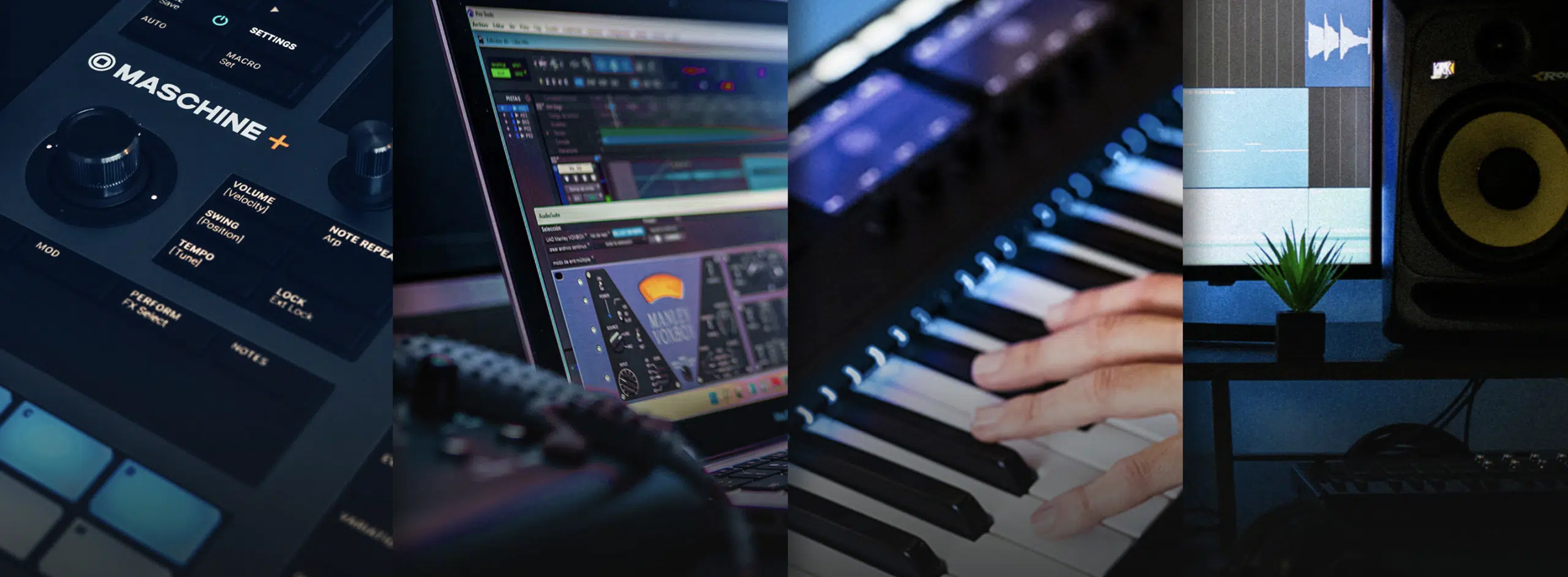
When deciding between an album vs EP, you should really consider the resources and timeline, because it could get a little pricey if you’re not producing it yourself.
Albums require a more substantial investment in terms of time, money, and effort because they involve extensive:
EPs, on the other hand, are more cost-effective and quicker to produce 一 allowing for more frequent releases and keeping your audience interested.
Balancing between the two different formats can optimize your release schedule and keep your music career on track, so just keep that in mind.
You really don’t want to put out sloppy work, because that makes people immediately switch the song and not take you seriously.
Marketing and Promotion
Marketing and promotion can make or break your music release. Whether it’s an album or an EP, having a solid plan is key, so let’s break it down.
-
Marketing Strategies When Releasing Albums
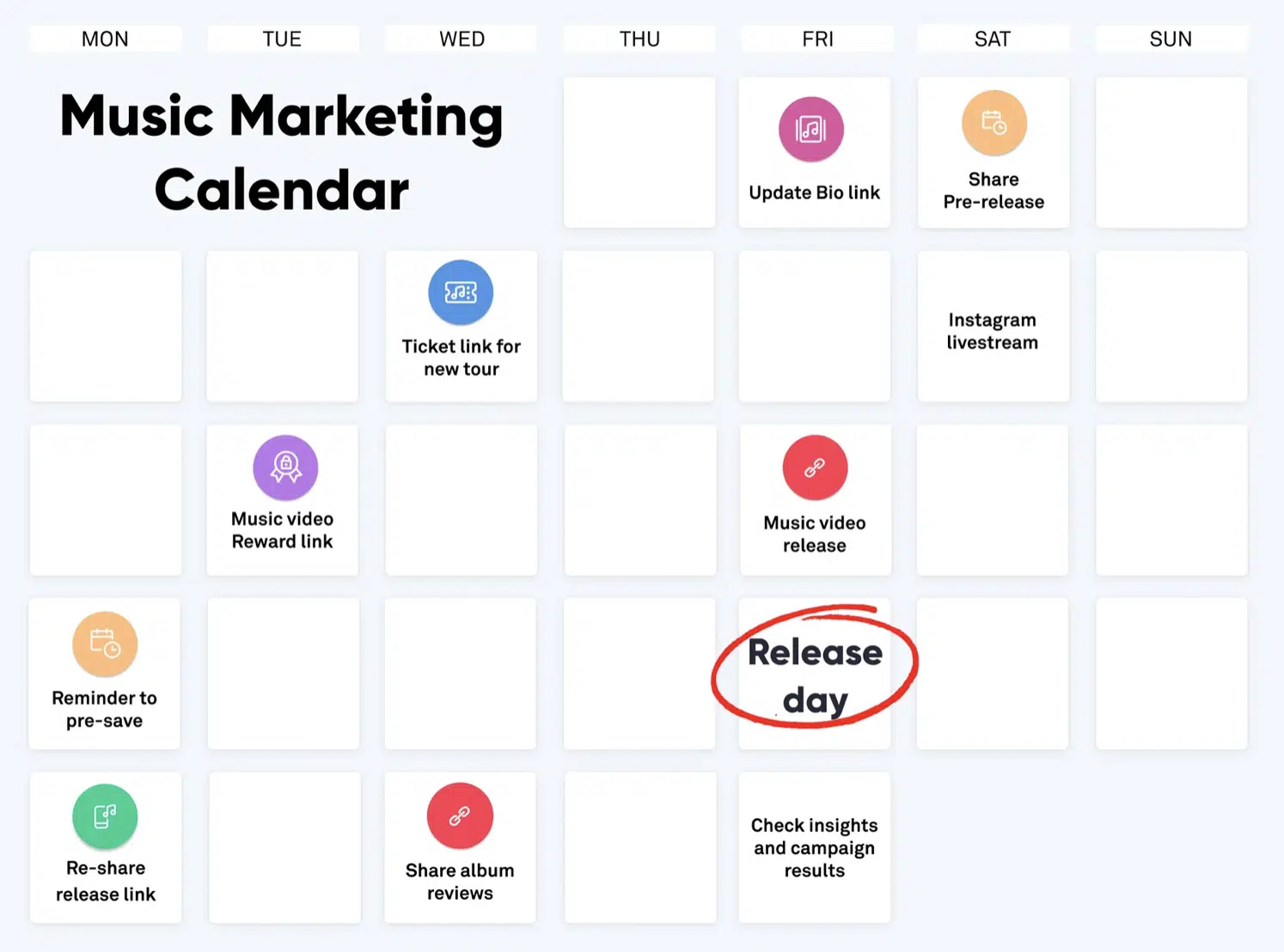
Marketing a full album requires a solid (long-term) strategy, so start by teasing singles and snippets on social media to build anticipation.
On average, from start to finish, an album still takes about a year and a half/two years 一 keeping the hype and staying dedicated are key.
Try creating engaging content like:
- Behind-the-scenes videos
- Lyric teasers/video teasers
- Themes
- Etc.
Also, make sure to collab with influencers and other artists to expand your reach.
Use email marketing to keep your fans informed about release dates and exclusive content, because, believe it or not, email is still a thing.
You could even try hosting a virtual or live album release party to generate buzz and connect with your audience directly.
But remember, before all this, you should really have a solid following first, so make sure to run them numbers up!
-
Marketing Strategies When Releasing EPs
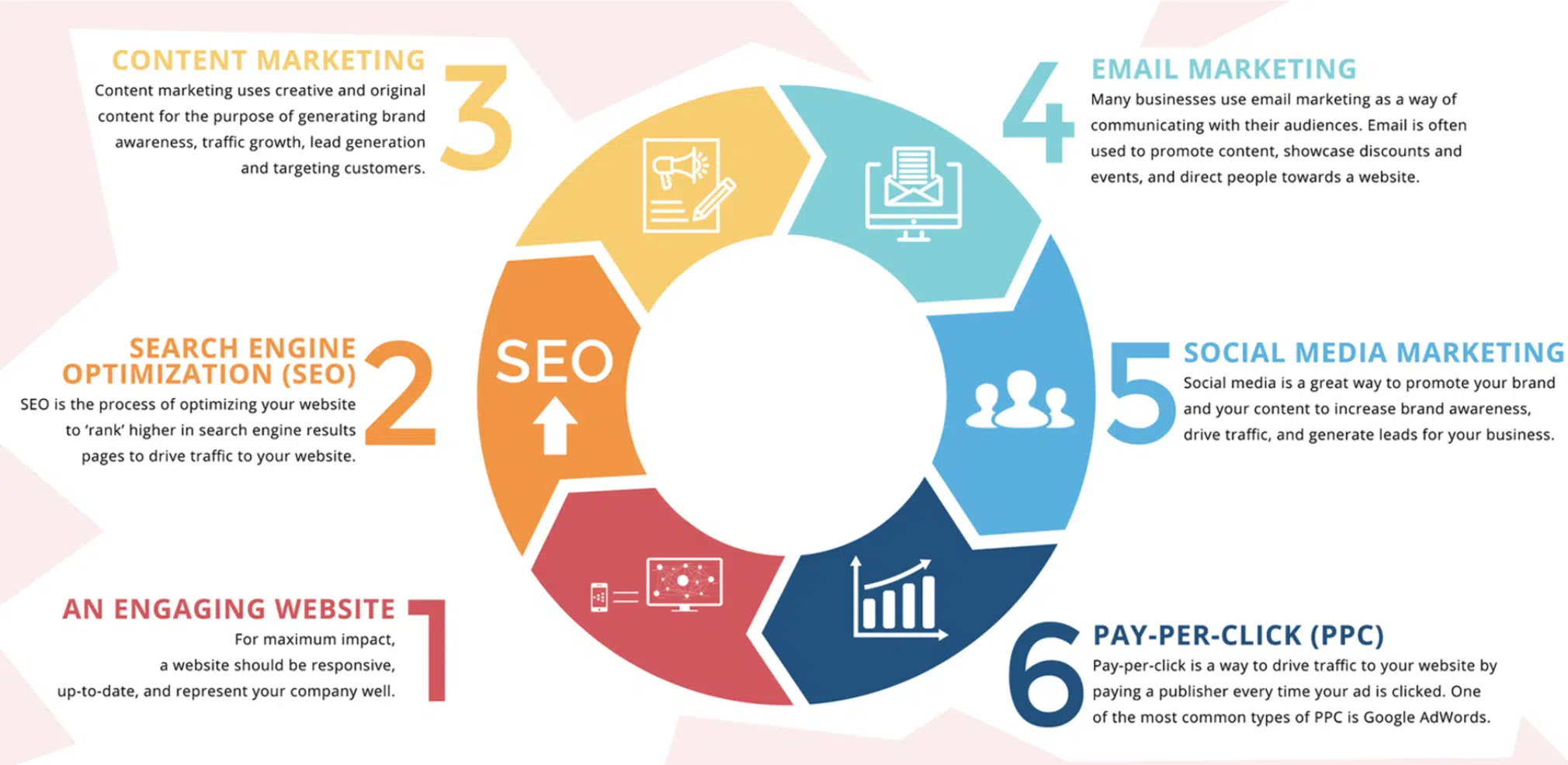
EPs benefit from a more calculated and focused marketing approach when you compare it to an album.
So, make sure to use social media platforms to announce your EP and share short clips or artwork and engage with your new fans through Q&A sessions and live streams.
Even the little things like doing a little questionnaire on your story is smart.
Also, always take advantage of playlists on streaming services to skyrocket visibility even further (which we’ll break down in the following sections).
Release singles from the EP to maintain momentum and interest, but make sure to pick the sickest ones 一 just think of what the most popular songs will most likely be.
And this isn’t the kind of thing where more songs are better necessarily, it’s all about building that hype, so be strategic with what you release and save for later.
You could also team up with blogs and music websites for reviews and features; anything to keep people talking about it.
Keep the campaign short and impactful to maximize attention and engagement.
More and more artists lately have used EP releases to keep their fans engaged between major album drops and it’s always been a smart move.
-
Pro Tip: Distribution on Streaming Services (Which is More Beneficial?)
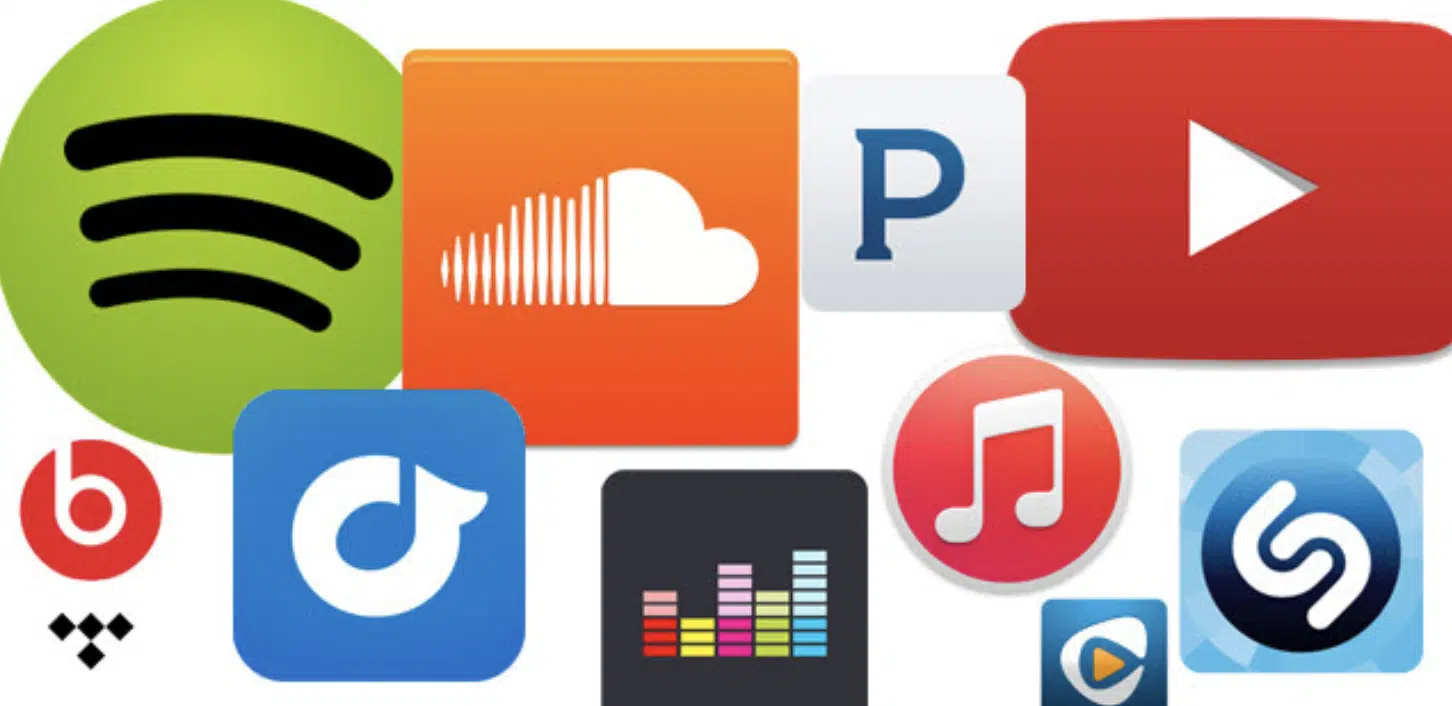
Choosing between distributing an album or an EP (extended play) on streaming platforms depends on your overall goals…
Albums provide more content for listeners to explore, which can lead to longer engagement times.
EPs, on the other hand, can generate quick interest and are often favored by playlist curators for their concise nature.
Streaming platforms like Spotify and Apple Music have specific algorithms that can favor either format depending on your single release strategy.
So it’s really all about considering your target audience and how they consume music.
For example, analyzing listener behavior on Spotify for Artists can help determine the best format for your next release/future releases.
Financial Perks & Downfalls: Album vs EP
Understanding the financial perks and downfalls of releasing an album vs EP is key for managing your music career and securing the bag. Each format (album format & EP format) has its own set of financial benefits and challenges. So, let’s get into it.
-
Revenue Generation from Album Releases
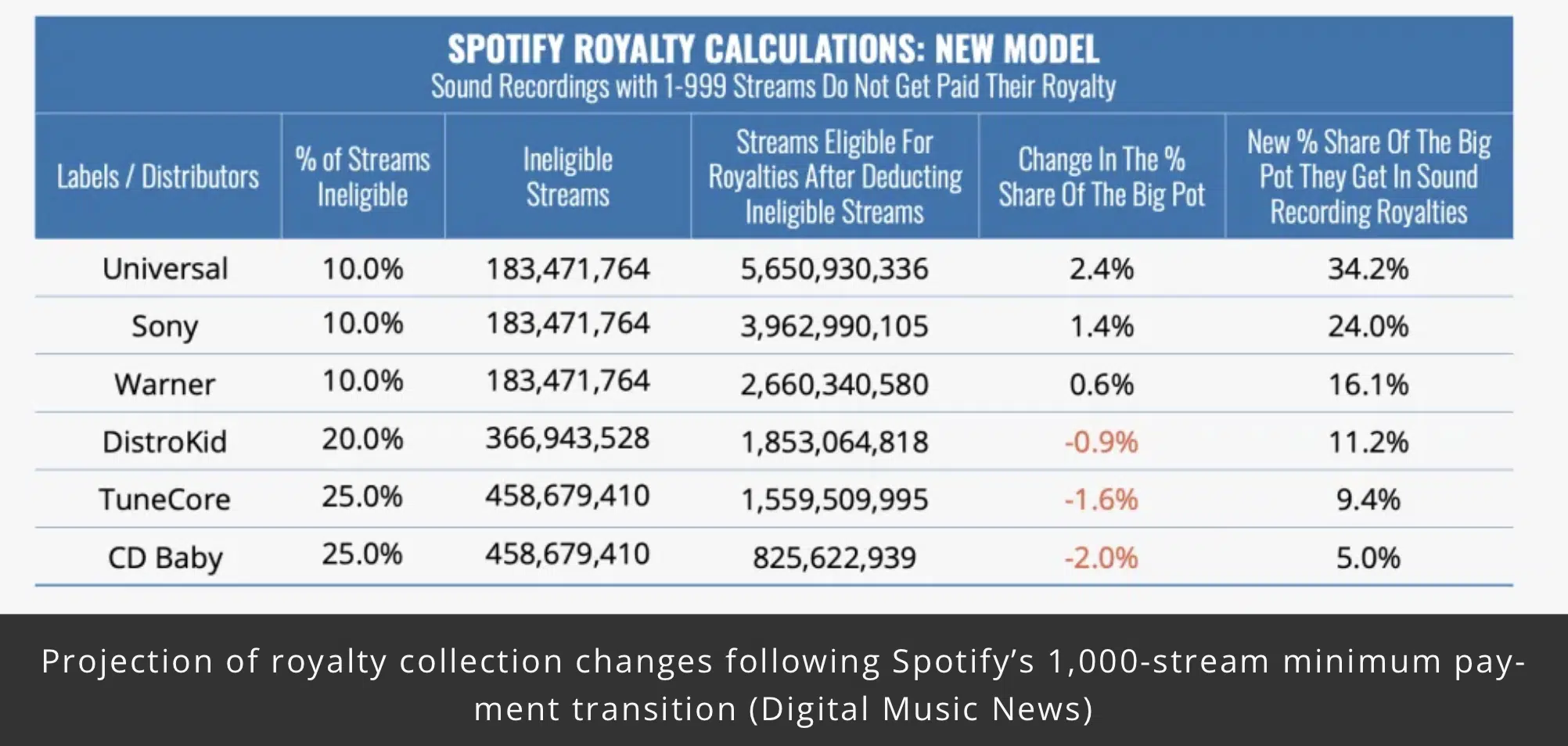
Albums can generate significant revenue through multiple channels, like sales from:
- Digital downloads
- Streaming royalties
- Merchandise
Full albums often attract more media attention 一 leading to increased exposure and higher sales (cha-ching).
However, the upfront costs for producing an album can be high, so it’s essential to plan your budget carefully so you don’t end up losing money.
Although, you have to spend money to make money, so if you break even but gain a bunch of new fans, attention, and clout, it’s certainly worth it.
A lot of independent artists are using crowdfunding platforms like Kickstarter or Patreon to finance their album production and generate early interest from their fan base, so you can look into that.
Again, it all depends on the following you have, so if you’re bigger on social media, you can even offer things like an exclusive record like tracks that didn’t make the cut.
-
Revenue Generation from EP Releases
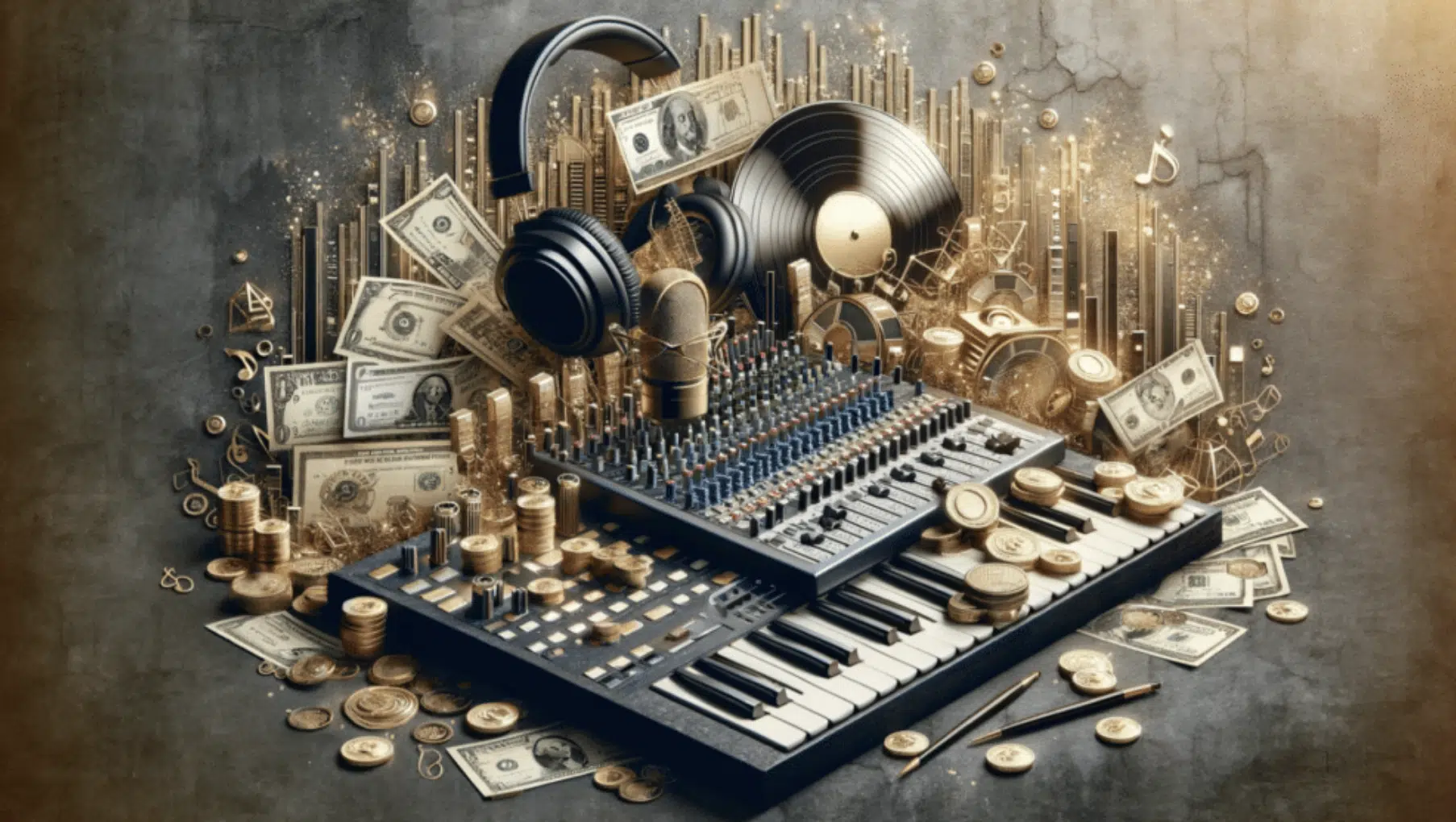
EPs, while shorter, can also make you a few extra dollars…
For starters, they’re less expensive to produce, which can mean a higher profit margin.
Plus, streaming royalties from an extended play (mini album, if you will) can be substantial if the tracks are popular.
EP releases can also drive merchandise sales and keep fans engaged between full-album releases, which is always great.
However, they may not attract as much media attention or label recognition as a full album, but that’s perfectly alright, especially if you’re just starting out.
Balancing EPs and albums in your release strategy can help maintain a steady revenue stream, so make sure to think about it carefully.
Getting Your Albums and EPs on Playlists
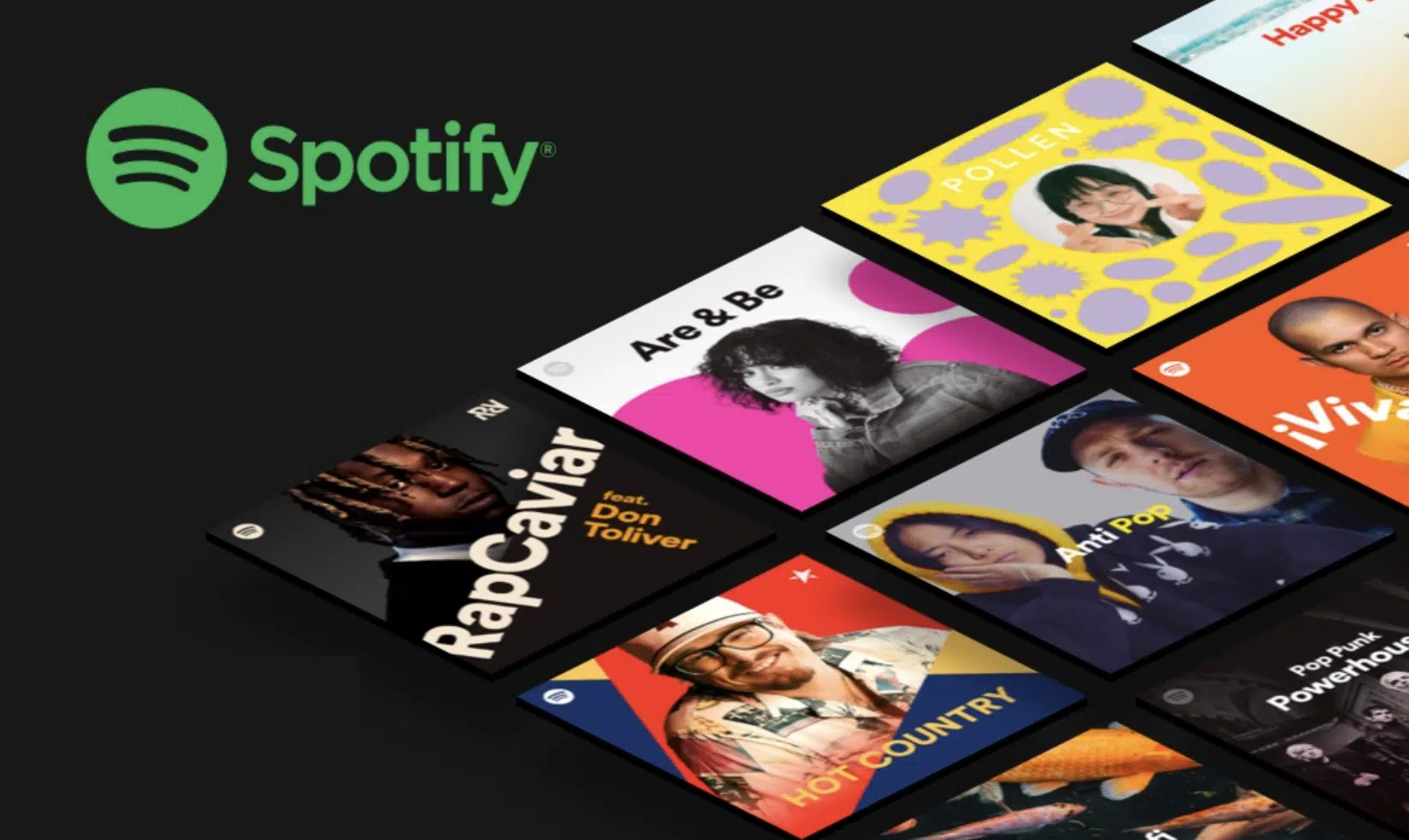
Getting your music on popular playlists nowadays is the key to boosting your exposure, streams, and popularity.
When releasing music, focus on reaching out to playlist curators well in advance of your release because it takes them a while to even see anything.
Make sure to highlight the standout tracks and provide context for your entire release because they really appreciate that type of thing.
EPs, with their concise nature, can be easier to pitch to playlist curators looking for fresh and new recorded music as I mentioned earlier.
Use platforms like Spotify for Artists to pitch your songs directly to editors.
Always track your playlist placements and adjust your strategies accordingly based on the average playlist consumption.
And, of course, releasing music frequently keeps you relevant and top of mind.
By focusing on getting your entire album or entire release on key playlists, you maximize your chances of reaching new listeners and growing your fan base.
Releasing music strategically can make all the difference in your music career, so whatever you can do to stay on the top of curators minds without being super annoying, go for it.
Advanced Tips for Artists
For artists looking to take their releases to the next level, here are some advanced strategies. These tips can help you maximize your impact and grow your music career.
-
Leverage Data and Analytics
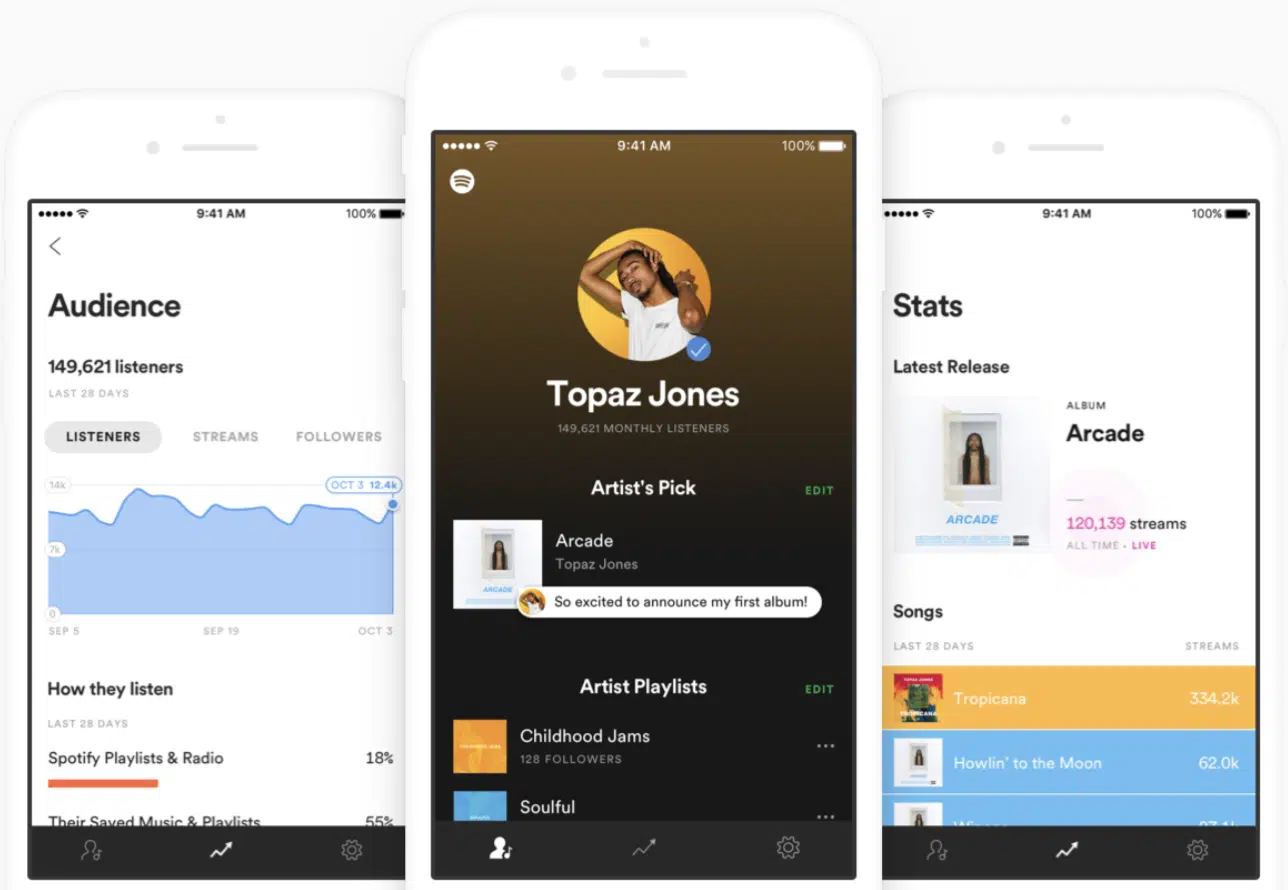
Use data and analytics to inform your release strategy, making sure to analyze listener behavior and demographics.
Check out which tracks perform best and why and use this information to tweak your marketing and promotion strategies.
Adjust your release schedule based on when your audience is most active because that makes all the difference.
Also, track the performance of your previous albums and EPs (or even just one popular song you released) to identify trends.
Taking advantage of this data can give you a significant advantage in the competitive new music industry, so don’t overlook it.
-
Releasing Bonus Tracks for Extra Clout
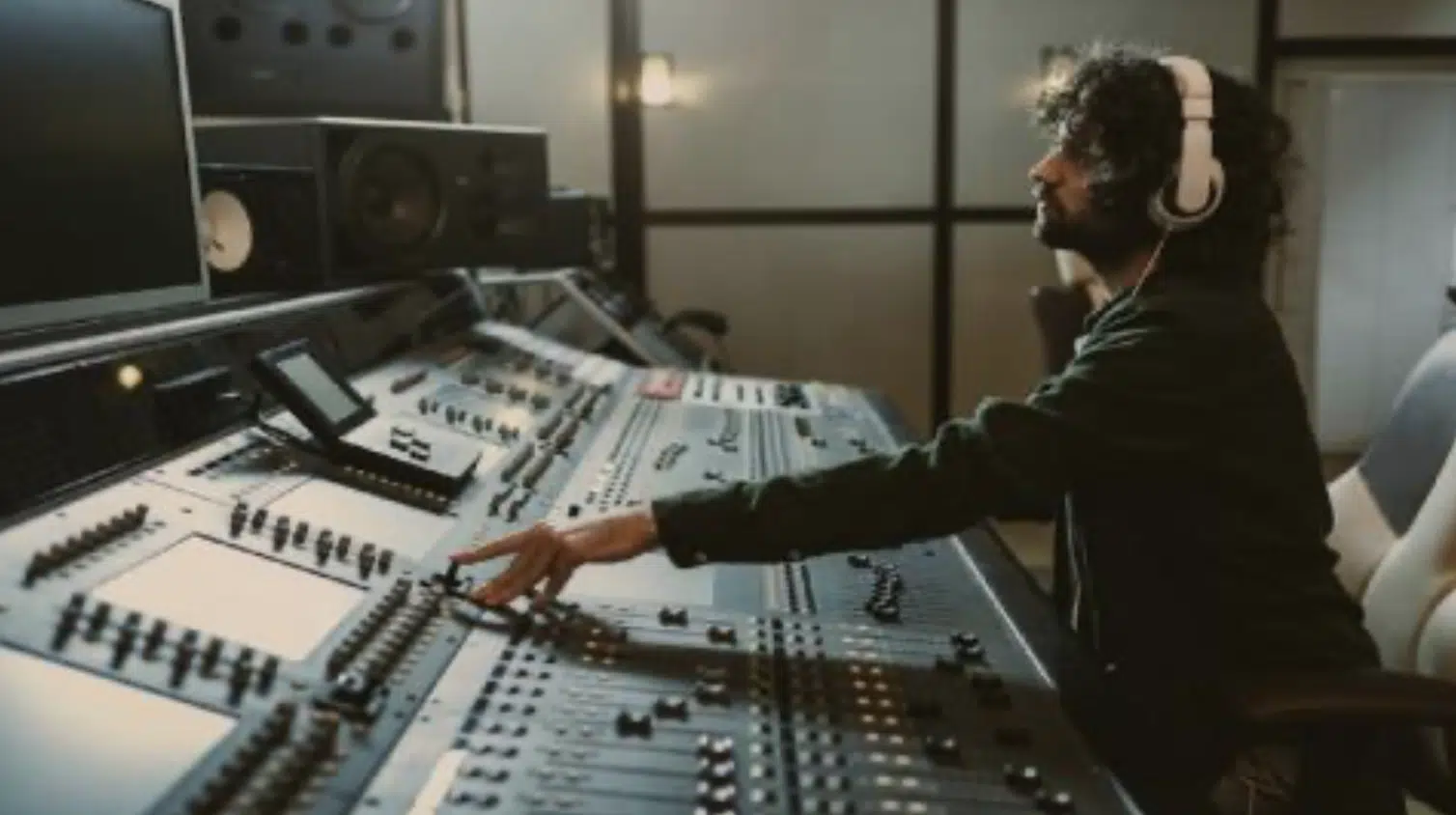
Releasing bonus tracks can be a great strategy to generate extra hype and engage your audience.
Include a few exclusive tracks in your entire release that are only available on certain platforms or in special editions.
It can create a sense of exclusivity and urgency among your fans.
Bonus tracks can also be used as incentives for pre-orders or as rewards for loyal listeners, which will make your listeners feel special.
By offering something extra, you not only reward your dedicated fan base but also attract new listeners looking for exclusive content.
It’ll help you stand out in the crowded music industry and keep your audience excited for your next project.
Plus, it’s a great way to keep releasing music consistently and ensure you don’t lose any momentum.
-
Build a Strong Visual Identity
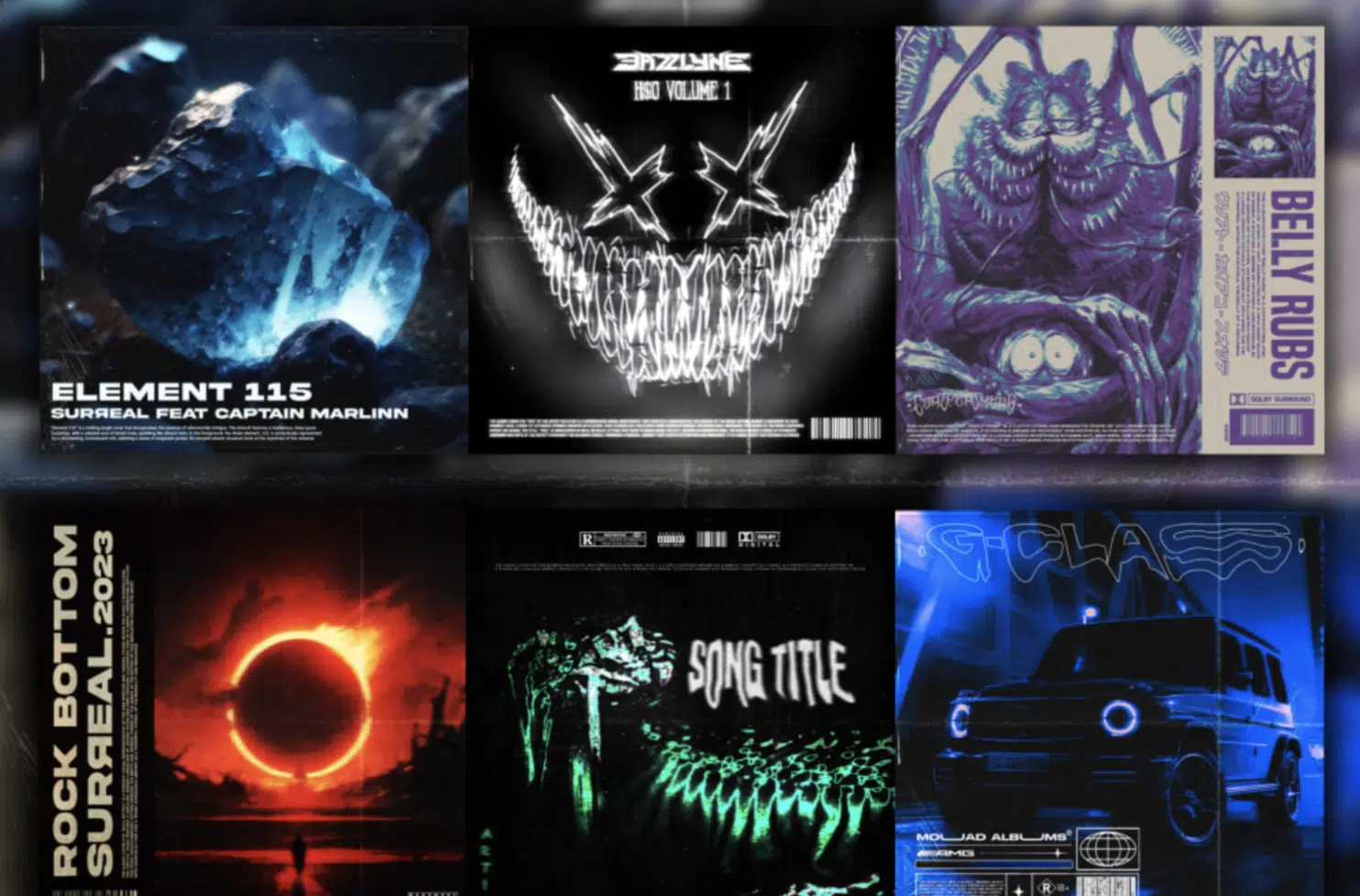
A strong visual identity can set you apart from other artists and make a lasting impression on your audience.
Start by investing in high-quality album art that reflects the theme and mood of your music to capture people’s attention.
Remember the actual album should have a whole vibe to it that people just can’t resist.
Consistent branding across all your visuals (from social media posts to music videos) helps create a fluid image.
NOTE: Use tools like Canva or Adobe Spark to design professional-looking graphics if you’re on a budget, but if not, I advise outsourcing for that.
Anything to help bring your vision to life is a good move.
Engage your fans with behind-the-scenes content, teasers, and visual snippets that build anticipation for your releases.
Remember, in today’s digital age, an instantly compelling visual identity is just as important as the music itself when it comes to releasing music and building a dedicated fan base.
Album vs EP: Final Thoughts
Albums and EPs are both powerful ways to showcase your talent, build your fan base, and help you stay relevant in the fast-paced music industry.
Plus, they ensure that you’re continuously engaging with your audience.
Now, with the information from this album vs EP article, you’ll be able to make the right decisions and ensure that your releases align with your goals/resources.
This way, you’ll be able to maximize your reach and impact like a professional.
For those looking to take their music to the next level, check out the renowned Songwriting Secrets course.
This course guides you through the process of writing a hit song from start to finish 一一 ensuring you create top-tier songs every single time like the professionals.
You’ll gain insider secrets that can help your tracks stand out over the competition and, regardless of genre, be able to create show-stopping songs.
In turn, your entire music career will be advanced.
Remember, whether you choose to release an album or an EP, the key is to stay strategic, dedicated, and hyper-focused.
Use the tips and strategies from this article to master your releases effectively and always stay creating and consistent, and watch your music career blow up.
Until next time…






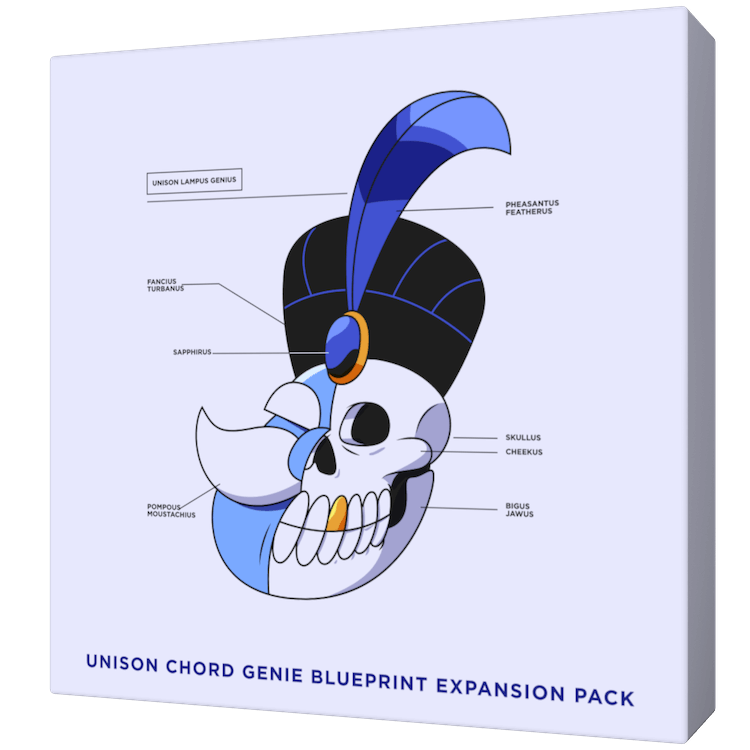
Leave a Reply
You must belogged in to post a comment.